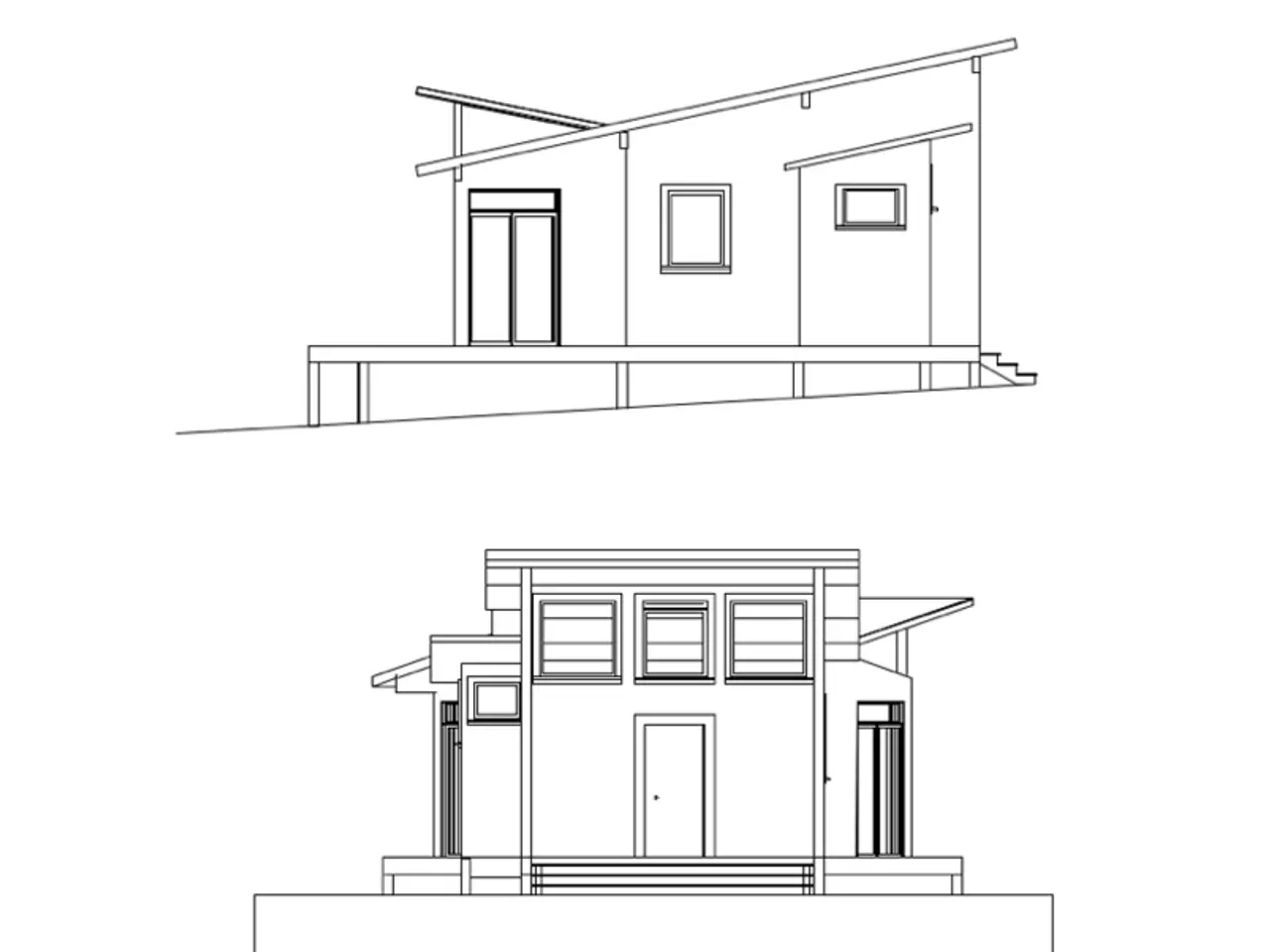Quantity of land required for house construction
Building a 4-bedroom house involves careful consideration of various factors, including plot size, density regulations, and parking requirements. This article provides a comprehensive guide to help potential homebuilders understand the typical land requirements for such a project.
A 4-bedroom house typically offers between 2,700 to 3,500 square feet of living space, with some plans featuring 1 to 1.5 stories [1][3][5]. For example, a 4-bedroom, 3-bath home plan might have a footprint measuring roughly 56 feet by 54 feet, equating to approximately 3,000 square feet of building footprint for a single story [1]. Two-story narrow lot homes with similar bedroom counts usually have similar total square footage but reduced footprint, affecting land needs [3].
The total plot size required would exceed just the house footprint, as zoning ordinances generally require setbacks from property lines and maintaining undisturbed natural areas. Some local ordinances, such as those in the Town of Dellona, WI, mandate that at least 60% of the lot remain undisturbed, preserving natural vegetation [4]. This means the house and associated driveway and parking must fit within about 40% of the plot at most.
Zoning regulations also play a crucial role in determining minimum lot size and density. These vary widely by jurisdiction and land use type, with suburban districts requiring minimum lot sizes from about 6,000 to 10,000 square feet for single-family homes, while rural zones may require larger lots [2]. Narrow or multi-story designs can reduce the footprint but must still comply with local policies.
Parking requirements also impact land use. For a 4-bedroom single-family home, typical off-street parking minimums are 2 parking spaces per unit, often including garages and driveway spaces [2]. A garage for 2-3 cars can add several hundred square feet to the footprint (e.g., 600+ sq ft for a 3-car garage) [1]. Parking areas must be incorporated into the lot design, increasing overall land demand.
In conclusion, planning for a 4-bedroom house typically requires a lot size of at least 6,000 to 10,000+ square feet, with adjustments based on local zoning, natural preservation rules, and parking requirements. The actual required land may be larger if strict regulations on natural undisturbed areas, driveway design, or density limits apply [2][4].
For precise requirements, reviewing local zoning ordinances and consulting with town planners is essential. It is important to check with the local plan and any associated development plan documents before starting a project to ensure compliance with council rules. Each local authority has its own planning guidelines, and the location of a plot can influence the amount of land needed to build a house and what the local planning authority will allow.
- To design a 4-bedroom home, you need to consider not just the living space (2,700 to 3,500 square feet), but also the plot size, which can range from 6,000 to 10,000+ square feet, as per local zoning regulations.
- While the house footprint might be around 40% of the plot size, zoning ordinances often require setbacks and natural area preservation, which could limit the actual house-building area on the land.
- The total land required for a 4-bedroom house project can increase due to parking requirements, with typical minimums being 2 parking spaces per unit, including garages and driveway spaces.
- To make informed decisions about home-and-garden investments, you should review local zoning ordinances and consult with town planners to understand the specific planning guidelines and regulations, particularly regarding natural preservation, driveway design, and density limits.
- Lifestyle considerations, such as investing in real-estate, may involve larger land purchases for a 4-bedroom house, especially if you're building in suburban areas with stricter zoning regulations.
- When planning such a project, it's crucial to consider the financing for both the house construction and the land acquisition, ensuring that your budget aligns with the required investment in both aspects.








